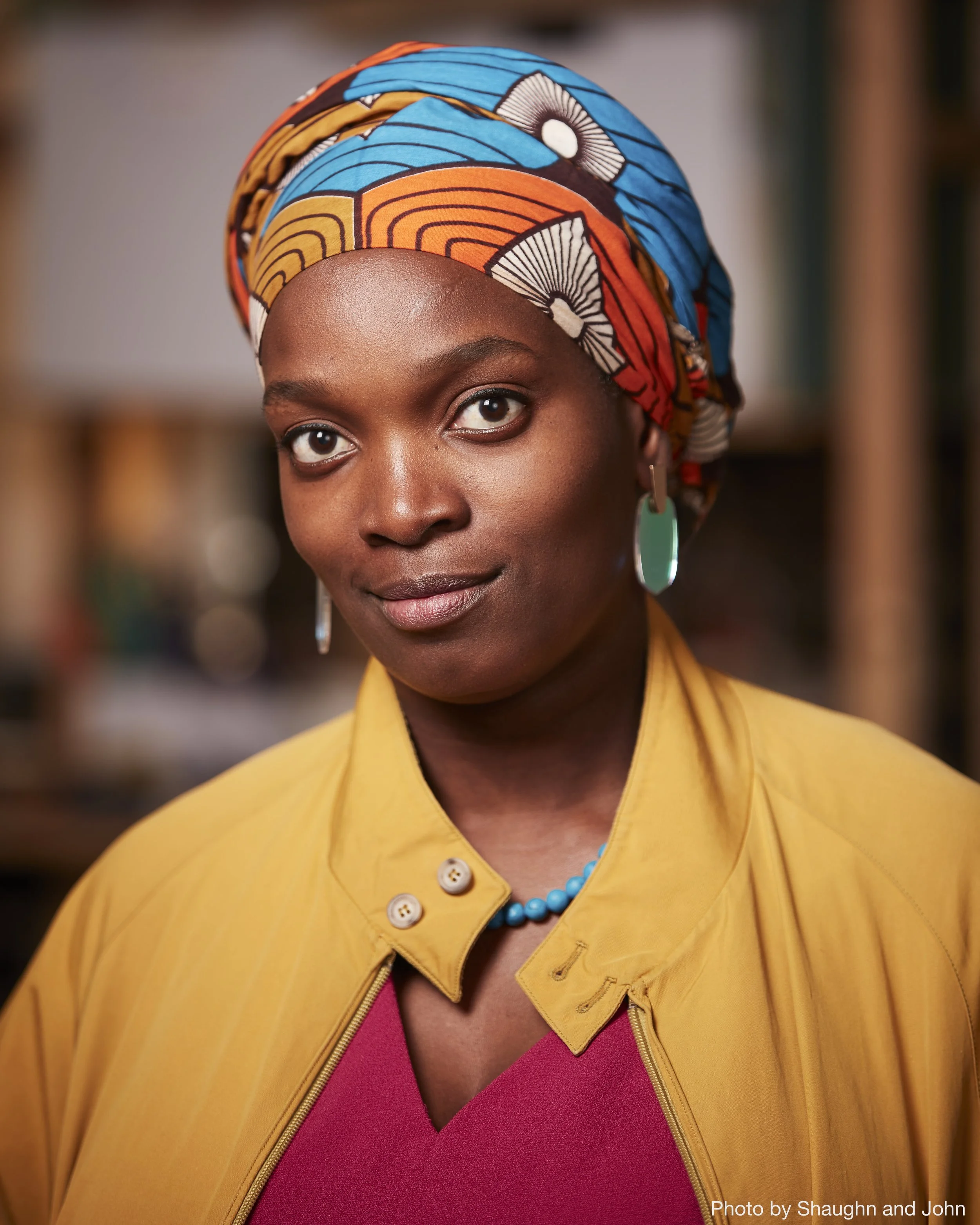Drawing on art historical, political and personal references, Njideka Akunyili Crosby creates densely layered figurative compositions that, precise in style, nonetheless conjure the complexity of contemporary experience. Akunyili Crosby was born in Nigeria, where she lived until the age of sixteen. In 1999 she moved to the United States, where she has remained since that time. Her cultural identity combines strong attachments to the country of her birth and to her adopted home, a hybrid identity that is reflected in her work.
On initial impression her work appears to focus on interiors or apparently everyday scenes and social gatherings. Many of Akunyili Crosby's images feature figures - images of family and friends - in scenarios derived from familiar domestic experiences: eating, drinking, watching TV. Rarely do they meet the viewer's gaze but seem bound up in moments of intimacy or reflection that are left open to interpretation. Ambiguities of narrative and gesture are underscored by a second wave of imagery, only truly discernible close-up. Vibrantly patterned photo-collage areas are created from images derived from Nigerian pop culture and politics, including pictures of pop stars, models and celebrities, as well as lawyers in white wigs and military dictators. Some of these images are from the artist's archive of personal snapshots, magazines and advertisements, while others are sourced from the internet. These elements present a compelling visual metaphor for the layers of personal memory and cultural history that inform and heighten the experience of the present.
While the artist's formative years in Nigeria are a constant source of inspiration, Akunyili Crosby's grounding in Western art history adds further layers of reference. Religious art, the intimism of Edouard Vuillard's intoxicatingly patterned interiors, the academic tradition of portraiture and, in particular, still life painting become vehicles for delivering, Trojan horse-like, new possible meanings.
These are images necessarily complicated in order to counter generalizations about African or diasporic experience. Talking about her work, Akunyili Crosby notes, 'In much the same way that inhabitants of formerly colonized countries select and invent from cultural features transmitted to them by the dominant or metropolitan colonizers, I extrapolate from my training in Western painting to invent a new visual language that represents my experience - which at times feels paradoxically fractured and whole - as a cosmopolitan Nigerian.'
Akunyili Crosby was born in Enugu, Nigeria in 1983 and currently lives and works in Los Angeles. She is the recipient of an Honorary Doctorate of Art from Otis College of Art, 2024, and Swarthmore College in 2019, a 2017 MacArthur Fellowship and was awarded Financial Times' Women of the Year, 2016, alongside the Future Generation Art Prize 2017 Shortlist. She is the recipient of the Prix Canson Prize, 2016, Foreign Policy's Leading 100 Global Thinkers of 2015, the Next Generation Prize, New Museum of Contemporary Art, 2015, the Joyce Alexander Wein Artist Prize, 2015, and the Smithsonian American Art Museum's James Dicke Contemporary Art Prize, 2014. Recent solo exhibitions include Front Room: Njideka Akunyili Crosby, The Baltimore Museum of Art (2018) alongside Prospect.4, curated by Trevor Schoonmaker, New Orleans, Louisiana (2018); Njideka Akunyili Crosby: Predecessors, Contemporary Arts Center, Cincinnati, OH, which toured to Tang Museum at Skidmore College, Saratoga Springs, NY (2017); Portals, Victoria Miro, London (2016), I Refuse to be Invisible, Norton Museum of Art, West Palm Beach (2016) and The Beautyful Ones, Art + Practice, Los Angeles (2015), staged concurrently with a solo presentation at the Hammer Museum, Los Angeles (2015).
Njideka is represented by Victoria Miro Gallery and David Zwirner Gallery.

